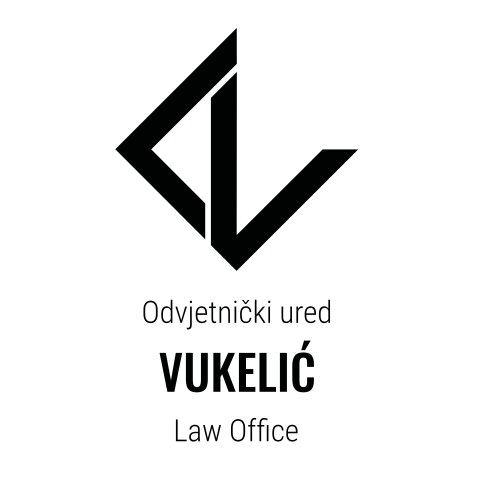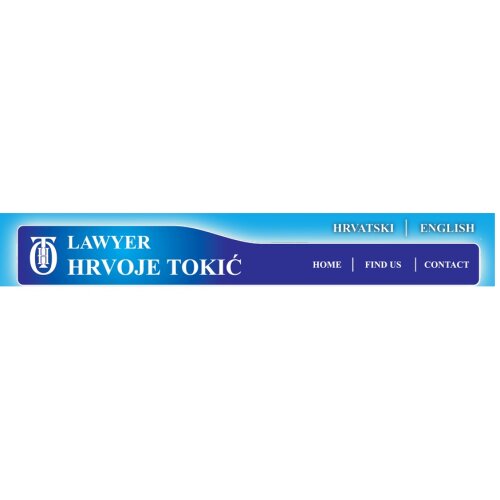Best Landlord & Tenant Lawyers in Croatia
Share your needs with us, get contacted by law firms.
Free. Takes 2 min.
Free Guide to Hiring a Real Estate Lawyer
Or refine your search by selecting a city:
List of the best lawyers in Croatia
About Landlord & Tenant Law in Croatia
Croatia's Landlord & Tenant law is a significant aspect of its property law framework, primarily governed by the Law on Obligations (Zakon o obveznim odnosima) and the Law on Lease of Flats (Zakon o najmu stanova). This area of law dictates the legal relationship between landlords and tenants, covering residential and commercial leases. The legislation is designed to ensure that both parties' rights and obligations are clear, providing security and stability in rental arrangements. Key aspects include rental agreements, tenants' rights, landlords' obligations, eviction procedures, and dispute resolution mechanisms.
Why You May Need a Lawyer
While some landlord and tenant situations may be resolved amicably, there are numerous situations where legal assistance may be necessary:
- Drafting or reviewing a rental agreement: Ensuring that the terms are favorable and legally compliant.
- Resolving disputes: Such as disagreements over rent payments, property maintenance, or lease terms.
- Eviction proceedings: Both landlords and tenants may need representation in eviction cases.
- Understanding tenant rights: Including protection from unlawful eviction and proper notice requirements.
- Enforcing lease terms: When a party breaches the agreement, legal assistance may be necessary to enforce rights.
Local Laws Overview
Key aspects of Croatian landlord and tenant law include:
- Rental Agreements: Must be in written form and typically outline rent amounts, payment schedules, property conditions, and duration.
- Rent Control: No national rent control exists, but local municipalities may have specific regulations.
- Tenant Rights: Tenants are entitled to a habitable living environment, privacy, and cannot be evicted without proper legal procedures.
- Landlord Obligations: Include maintaining the property, issuing receipts for rent payments, and providing necessary repairs.
- Security Deposits: Often required at the start of the lease, and the return is subject to the property being undamaged.
Frequently Asked Questions
What is the standard duration of a residential lease in Croatia?
Residential leases usually last from one year to an unlimited duration, depending on the agreement between the landlord and tenant.
Can a landlord increase the rent during the lease term?
Rent increases are generally not allowed during a fixed-term lease unless specified in the lease agreement. For indefinite leases, the landlord may propose changes, but they must adhere to legal guidelines.
What are a tenant's responsibilities in Croatia?
Tenants are responsible for paying rent on time, maintaining the property in good condition, and following the terms of the lease agreement.
How much notice must a landlord give to end a lease?
Notice periods vary based on the lease type, but typically range from 3 to 6 months for terminating an indefinite lease without cause, unless otherwise specified in the agreement.
What should I do if my landlord refuses to return my security deposit?
Document the request for the deposit, maintain communication records, and consider engaging a lawyer to mediate or proceed with legal action if necessary.
Is subletting allowed in Croatia?
Subletting is generally permissible, but it must be explicitly allowed by the landlord in the rental agreement.
What are the common grounds for tenant eviction?
Common grounds include non-payment of rent, violation of lease terms, or illegal activities conducted on the premises.
Do tenants have rights to make repairs and deduct costs from the rent?
Tenants should notify the landlord of necessary repairs. If the landlord fails to act, tenants may carry out essential repairs and deduct reasonable costs from the rent, though prior notification is recommended.
How does the eviction process work?
An eviction process must be conducted legally, requiring court orders in many cases, especially if the tenant does not vacate voluntarily after notice.
Are there specific laws for commercial leases?
While generally covered under similar laws, commercial leases may have more flexibility in terms, and specific provisions may apply. Legal counsel is advised for drafting and negotiating these agreements.
Additional Resources
For additional assistance, consider these resources:
- The Ministry of Justice of the Republic of Croatia offers resources and contact points for legal inquiries.
- The Chamber of Commerce may provide guidance on commercial lease specifics.
- Local legal aid organizations: Offering cost-effective or free legal aid for qualifying individuals.
- Check municipal websites for local ordinances and regulations affecting tenancies.
Next Steps
If you need legal assistance, consider taking the following steps:
- Consult a Lawyer: Seek a legal professional specializing in Croatian landlord and tenant law for personalized advice.
- Gather Documentation: Compile your lease agreement, correspondence with the landlord or tenant, and any other relevant evidence.
- Consider Mediation: Mediation services might be a viable option before pursuing formal legal action.
- Research your Rights: Understand your legal rights and obligations under Croatian law to make well-informed decisions.
Navigating landlord and tenant issues can be complex, and professional guidance can ensure your rights are protected.
Lawzana helps you find the best lawyers and law firms in Croatia through a curated and pre-screened list of qualified legal professionals. Our platform offers rankings and detailed profiles of attorneys and law firms, allowing you to compare based on practice areas, including Landlord & Tenant, experience, and client feedback.
Each profile includes a description of the firm's areas of practice, client reviews, team members and partners, year of establishment, spoken languages, office locations, contact information, social media presence, and any published articles or resources. Most firms on our platform speak English and are experienced in both local and international legal matters.
Get a quote from top-rated law firms in Croatia — quickly, securely, and without unnecessary hassle.
Disclaimer:
The information provided on this page is for general informational purposes only and does not constitute legal advice. While we strive to ensure the accuracy and relevance of the content, legal information may change over time, and interpretations of the law can vary. You should always consult with a qualified legal professional for advice specific to your situation.
We disclaim all liability for actions taken or not taken based on the content of this page. If you believe any information is incorrect or outdated, please contact us, and we will review and update it where appropriate.
Browse landlord & tenant law firms by city in Croatia
Refine your search by selecting a city.

















